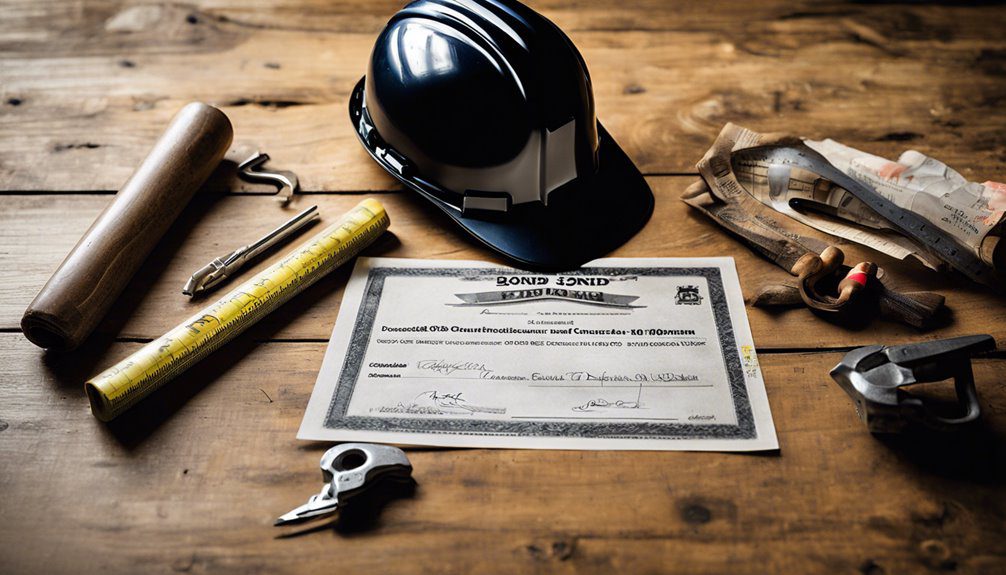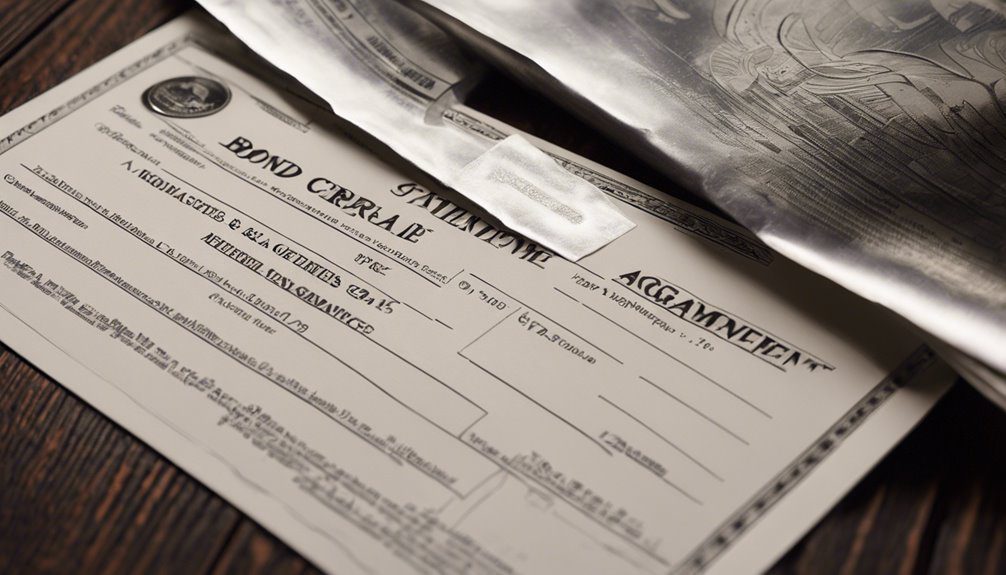When you're considering becoming a licensed contractor in Charleston County, it's essential to understand the role of the $5,000 bond. This bond isn't just a formality; it's a vital component that protects both you and your clients while ensuring you comply with local regulations. You might wonder about the specific benefits it offers or how it can enhance your credibility in a competitive market. What steps do you need to take to secure this bond, and what common pitfalls should you watch out for? The answers might surprise you.
Importance of the ,000 Bond

The $5,000 bond is crucial for contractors in Charleston County, as it provides financial protection for clients against potential disputes or failures to meet contractual obligations. By securing this bond, you're not just complying with local regulations; you're also building trust with your clients. They'll feel more confident hiring you, knowing there's a safety net in place should issues arise.
When you have this bond, it demonstrates your commitment to professionalism and accountability. If you don't deliver as promised or if a dispute arises, the bond ensures that clients have a recourse for recovering losses. This can be a significant factor in winning contracts, as clients often look for evidence of reliability before making their decision.
Moreover, having the bond can enhance your reputation within the industry. Peers and clients alike recognize that you take your responsibilities seriously, which can lead to more referrals and repeat business.
In a competitive market, this bond can set you apart. In essence, the $5,000 bond not only protects your clients but also elevates your standing as a contractor in Charleston County, paving the way for future success. Additionally, this bond functions similarly to Illinois surety bonds, providing essential financial security that is recognized across various industries.
Eligibility Requirements for Contractors
Securing the $5,000 bond is just one step in establishing your credibility as a contractor in Charleston County. To qualify for a contractor's license, you need to meet specific eligibility requirements.
First, you must be at least 18 years old. This age requirement ensures you have the maturity and responsibility essential for managing construction projects.
Next, you'll need to provide proof of experience in your area of expertise. Typically, this means having at least two years of relevant work experience or equivalent education. If you're planning to take on specialized work, being certified or licensed in that field is crucial.
Additionally, a clean legal record is vital. Any felony convictions, especially those related to fraud or dishonesty, could disqualify you.
You also need to show proof of insurance, including general liability and workers' compensation coverage, to protect yourself and your clients. Furthermore, obtaining the bond demonstrates your commitment to adhering to licensing laws that protect both your business and the public.
Steps to Obtain a Contractor's License

Obtaining a contractor's license in Charleston County involves several key steps that ensure you're ready to take on projects legally and responsibly.
First, you'll need to gather your documentation, which typically includes proof of experience, identification, and any necessary educational credentials.
Next, you must complete the application form provided by the Charleston County government. Make sure to fill it out accurately and completely to avoid delays.
Once your application is submitted, you'll be required to pay a licensing fee, which varies based on your specific trade.
After submitting your application, you'll need to pass any required examinations. Preparation is crucial, so consider studying relevant building codes and regulations.
If you pass, you'll receive a passing score that you can add to your application. Additionally, having a surety bond can enhance your credibility with clients and stakeholders in the industry.
Understanding the Bonding Process
After you've navigated the licensing steps, understanding the bonding process is vital for your business. A contractor's bond acts as a safety net, ensuring you adhere to local laws and regulations.
When you apply for a bond, you'll need to provide various documents, including your contractor's license, proof of business insurance, and sometimes financial statements.
The bond itself is essentially a contract between three parties: you, the surety company, and the customer. You'll pay a premium—often a percentage of the total bond amount—usually around 1-15%. This premium is a one-time fee you'll pay annually or semi-annually, depending on your agreement with the surety.
Once you secure your bond, it remains active as long as you comply with the terms set forth. If a customer files a claim against your bond, the surety company will investigate and, if valid, compensate the claimant up to the bond amount. You'll then be responsible for reimbursing the surety.
Understanding this process not only helps you operate within the legal framework but also builds trust with potential clients, showcasing your commitment to professionalism.
Benefits of Being Bonded

Being bonded offers significant advantages that can enhance your contracting business. First and foremost, it demonstrates your professionalism and credibility to potential clients. When you're bonded, clients feel more secure knowing that they're protected against potential losses caused by your work. This can be a deciding factor when they choose between you and your competitors.
Additionally, being bonded can open up opportunities for larger projects. Many clients, especially commercial ones, require contractors to be bonded before awarding contracts. By having this bond in place, you position yourself favorably for bigger jobs that can significantly boost your income.
Moreover, a bond can enhance your reputation in the industry. It shows that you're committed to adhering to regulations and maintaining high standards in your work. This commitment not only attracts clients but can also lead to referrals, further expanding your business.
Lastly, being bonded often provides peace of mind. You know you're safeguarded against certain financial risks, allowing you to focus on delivering quality work. Furthermore, obtaining a bond can streamline the bonding process for contractors and businesses, making it easier to navigate contract bonding requirements.
Common Mistakes to Avoid
While the benefits of being bonded can significantly enhance your contracting business, it's important to avoid common pitfalls that could undermine your success. One major mistake is neglecting to read the fine print of your bond agreement. Always ensure you understand the terms and conditions, as unexpected clauses can lead to complications later.
Another frequent error is underestimating the amount of bond coverage you need. Make sure your bond amount aligns with local requirements and can adequately protect you and your clients.
Also, don't overlook the importance of maintaining a good credit score; a poor score can result in higher bond premiums or even denial of bonding.
Additionally, failing to keep track of renewal dates can cause lapses in coverage, leaving you vulnerable during critical projects. Regularly check and update your bond status to stay compliant.
Lastly, don't hesitate to consult with professionals if you're unsure about any aspect of the bonding process. Seeking advice can save you time, money, and potential headaches. Understanding the importance of debt consolidator bonds can also provide valuable insights into managing financial obligations effectively.
Conclusion
In Charleston County, securing your contractor's license with a $5,000 bond isn't just a requirement; it's a smart move for your business. It boosts your credibility and helps you stand out in a crowded market. By understanding the bonding process and avoiding common pitfalls, you can establish trust with clients and ensure compliance with local regulations. So, take the steps necessary to get bonded—it's an investment in your professional reputation and future success.

